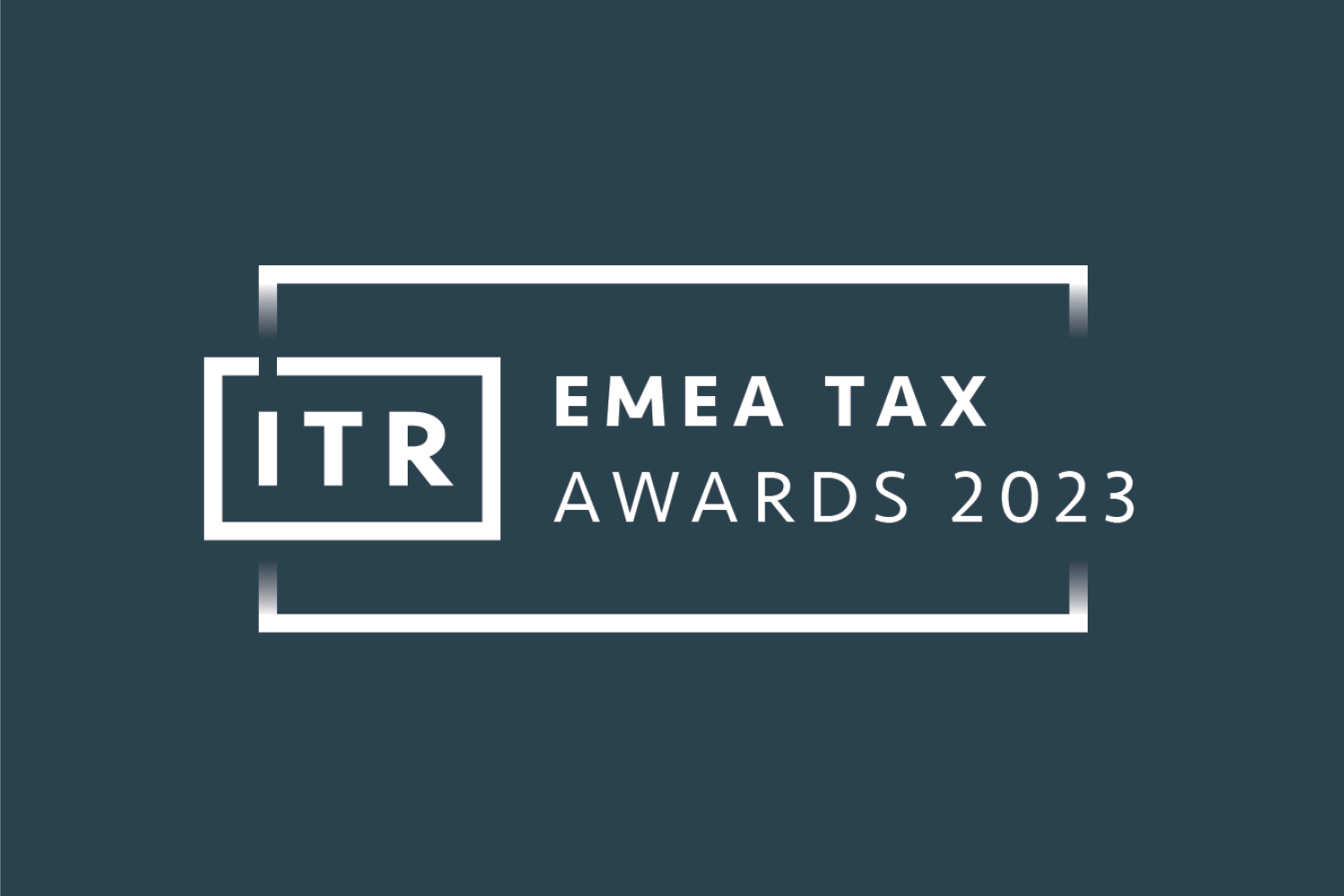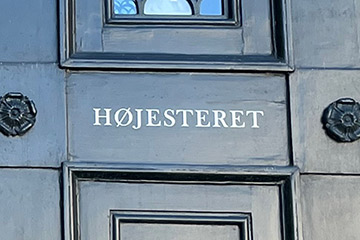The opinion of the Advocate General in the "beneficial owner" cases has been delivered
01 March 2018
Today Advocate General Kokott gave her opinion in the 6 test cases pending before the Court of Justice of the European Union. We expect the Court of Justice to give its judgment in the autumn of 2018.
The overall issue in the "beneficial owner" cases is whether Danish companies should have withheld tax in connection with interest and dividend payments to their parent companies, which are resident in other EU member states. SKAT claims that the parent companies in question are so-called conduit companies because the amounts received - in SKAT's opinion - have been passed on to other group entities in tax haven countries. The parent companies are therefore according to SKAT not the beneficial owners of the dividends or interest received, and the Danish subsidiaries should consequently have withheld tax at source in connection with such payments. As they failed to do so, SKAT is of the opinion that the Danish companies are liable for payment of the tax. The number of cases is substantial, and the values involved are in the billions.
Many of the cases are pending before the two Danish high courts, which have referred 6 representative cases to the Court of Justice of the European Union for so-called preliminary rulings on the interpretation of EU law. In particular, the questions raised concern the interpretation of the Parent-Subsidiary Directive and the Interest and Royalties Directive and their implementation into Danish law as well as the right to freedom of establishment of the EU Treaty.
Plesner is representing the taxpayers in three of these test cases – one involving dividend payments and two involving interest payments. In October 2017, we litigated these cases at a hearing before the Court of Justice in Luxembourg and now the opinion of the Advocate General has finally been delivered.
As a first point, the Advocate General clarifies that the right to a dividend follows from the status as a parent company for corporate law purposes why the Parent-Subsidiary Directive does not require that the dividend recipient is the "beneficial owner" of the dividend. So, if the other conditions of the directive are met, the member states may only rely upon the anti-abuse provision in article 1 (2) to limit the taxpayers' right of protection under the directive.
The Advocate General then goes on to confirm that a member state, that has not transposed article 1(2) of the directive into national law, cannot rely upon the provision and that neither section 2(1)(c) of the Danish Corporate Tax Act nor a double tax treaty provision equivalent to article 10 of the OECD Model Tax Convention constitute adequate transposition. However, this does not prevent general principles of national law whose purpose is to enable specific action to be taken against artificial arrangements or abuse by individuals from being interpreted and applied in conformity with EU law. In these cases, the parties however agree that the dividend recipients are the "rightful income recipients" under Danish law as well as application of the substance-over-form doctrine does not form the basis for setting aside the transactions in question.
The Advocate General also dismisses that the general anti-abuse principle under EU law may be relied upon directly.
Based on these conclusions, the Advocate General has found it unnecessary to answer the raised questions regarding interpretation of the EU treaty.
The Advocate General states that the concept of beneficial owner must be interpreted under EU law autonomously and independently of the commentaries on Article 11 of the 1977 OECD Model Tax Convention or subsequent versions.
And further that a company resident in another Member State which owns the interest-bearing claim is treated in principle as the beneficial owner within the meaning of the directive unless the company is acting not in its own name and on its own account, but for and on the account of a third party.
With respect to the application of the anti-abuse provision of the Interest and Royalties Directive (article 5), the Advocate General expresses the same opinion as in respect of the similar provision (article 1(2)) of the Parent-Subsidiary Directive as described above.
Plesner's team on these cases are partners Hans Severin Hansen, Lasse Esbjerg Christensen and Anders Endicott Pedersen.
Many of the cases are pending before the two Danish high courts, which have referred 6 representative cases to the Court of Justice of the European Union for so-called preliminary rulings on the interpretation of EU law. In particular, the questions raised concern the interpretation of the Parent-Subsidiary Directive and the Interest and Royalties Directive and their implementation into Danish law as well as the right to freedom of establishment of the EU Treaty.
Plesner is representing the taxpayers in three of these test cases – one involving dividend payments and two involving interest payments. In October 2017, we litigated these cases at a hearing before the Court of Justice in Luxembourg and now the opinion of the Advocate General has finally been delivered.
The dividend cases
In the dividend cases - which have been won by the taxpayers in the National Tax Tribunal on account of EU law - the main question is whether the Parent-Subsidiary Directive requires that domestic law contains a specific anti-abuse provision in order for the tax authorities to deny the taxpayer protection under the directive and, if so, whether the Danish provision on dividend withholding tax meets such requirements, or whether the tax authorities may rely directly on the general EU anti-abuse principle as established by the Court of Justice.As a first point, the Advocate General clarifies that the right to a dividend follows from the status as a parent company for corporate law purposes why the Parent-Subsidiary Directive does not require that the dividend recipient is the "beneficial owner" of the dividend. So, if the other conditions of the directive are met, the member states may only rely upon the anti-abuse provision in article 1 (2) to limit the taxpayers' right of protection under the directive.
The Advocate General then goes on to confirm that a member state, that has not transposed article 1(2) of the directive into national law, cannot rely upon the provision and that neither section 2(1)(c) of the Danish Corporate Tax Act nor a double tax treaty provision equivalent to article 10 of the OECD Model Tax Convention constitute adequate transposition. However, this does not prevent general principles of national law whose purpose is to enable specific action to be taken against artificial arrangements or abuse by individuals from being interpreted and applied in conformity with EU law. In these cases, the parties however agree that the dividend recipients are the "rightful income recipients" under Danish law as well as application of the substance-over-form doctrine does not form the basis for setting aside the transactions in question.
The Advocate General also dismisses that the general anti-abuse principle under EU law may be relied upon directly.
Based on these conclusions, the Advocate General has found it unnecessary to answer the raised questions regarding interpretation of the EU treaty.
The interest cases
In the interest cases - which have been lost by the taxpayers in the National Tax Tribunal - the main questions relate to the interpretation of the concept of beneficial owner as laid down in the Interest and Royalties Directive.The Advocate General states that the concept of beneficial owner must be interpreted under EU law autonomously and independently of the commentaries on Article 11 of the 1977 OECD Model Tax Convention or subsequent versions.
And further that a company resident in another Member State which owns the interest-bearing claim is treated in principle as the beneficial owner within the meaning of the directive unless the company is acting not in its own name and on its own account, but for and on the account of a third party.
With respect to the application of the anti-abuse provision of the Interest and Royalties Directive (article 5), the Advocate General expresses the same opinion as in respect of the similar provision (article 1(2)) of the Parent-Subsidiary Directive as described above.
Next step
Next step is for the the Court of Justice to give its judgment in the cases. We expect this to take place sometime in the autumn of 2018.Plesner's team on these cases are partners Hans Severin Hansen, Lasse Esbjerg Christensen and Anders Endicott Pedersen.







